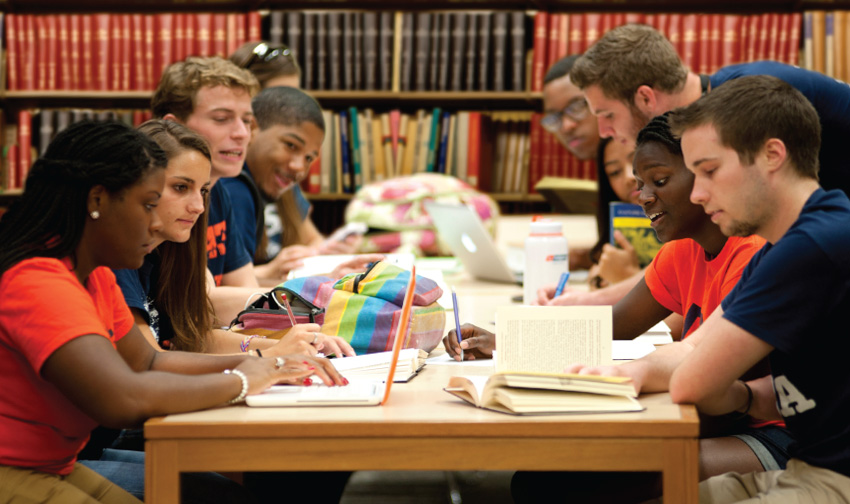
For students tackling college-level research projects for the first time, the library can seem daunting. But the UTSA Libraries now has a staff of five student coaches available to assist other students in finding and utilizing tools like electronic databases to help in their research projects and class assignments.
The program, known as the Peer Research Coaches, is the first of its kind, said Library Dean Krisellen Maloney. It is funded by a $50,000 Hearst Foundation endowment, part of a $150,000 donation to the university by the media chain. Separately, local insurance firm USAA has donated $45,000 over two years for the program, Maloney said.
"We know that students are more likely to go to other students when they have questions, so we designed this program to have [the coaches] available within the library, both at the information desk and roaming throughout the library," she added.
Maloney noted that as many as 10,000 students daily use the John Peace Library on Main Campus, but she said that the coaches would also be rotating to the Downtown Campus library.
With more than 200 electronic and other databases available at the Main Campus library, students have a dizzying array of educational aids to draw from. But if they don't know such assistance is available, are too timid to raise their hand during class or don't fully understand their assignment, "all the research tools are not going to be very helpful," said Bryce Hower, a senior engineering major from Houston and one of five students selected to be coaches.
"Some students may look up things on Google or Wikipedia, but not know how to utilize library resources for deeper information gathering, so we will teach them how to find and use those resources," he said. "And for us, it is satisfying to know we actually helped a student learn something."
Maloney noted that the five student peers—she hopes to have eight by fall 2013—are paid a salary, but unlike workstudy students, they won't have just one task to complete.
"We expect that the coaches will also be informing us about student behavior, and they will work on the Facebook team to help us formulate our message in a way that the students will understand," Maloney said.
The coaches will also "assist us in usability studies, to help us understand what students need from the libraries," she added.
The library has already begun using social media to let students know about the new resource. As the program develops, the greater depth of student research papers as well as the quality of students' experience on campus will be measures of its success.
–Guillermo Garcia